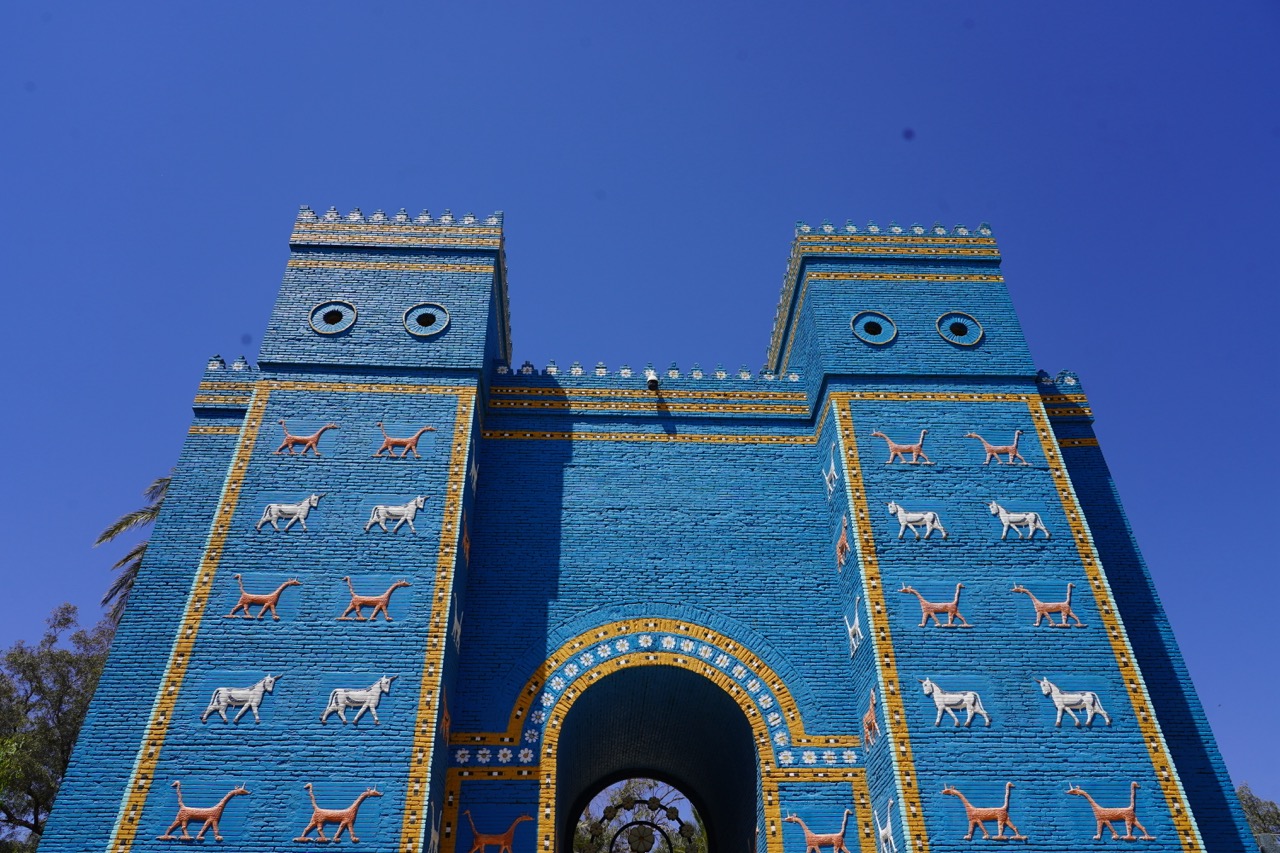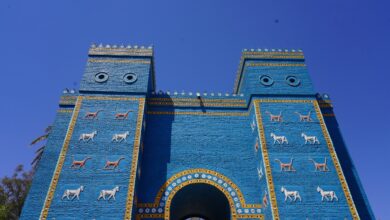Babylon was once believed to have been founded by the ancient Mesopotamian god, Marduk, and home to the Hanging Gardens of Babylon, one of the prominent Seven Wonders of the Ancient World.
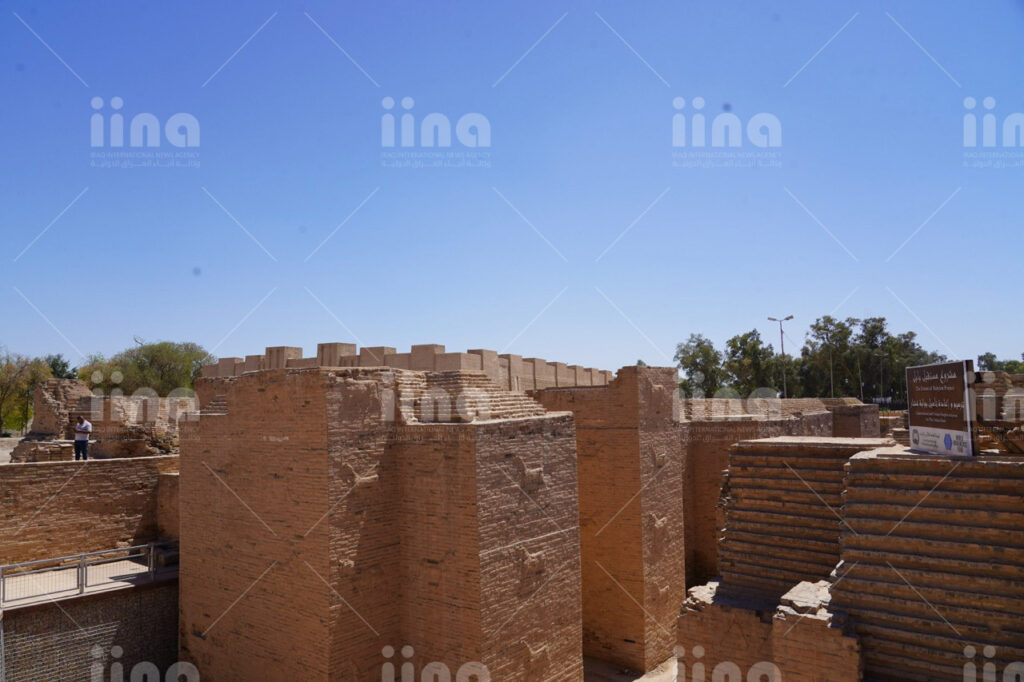
Located in the modern day city of Hillah, Iraq, the 4,000 year old city of Babylon is one of the most iconic archaeological sites in the world.
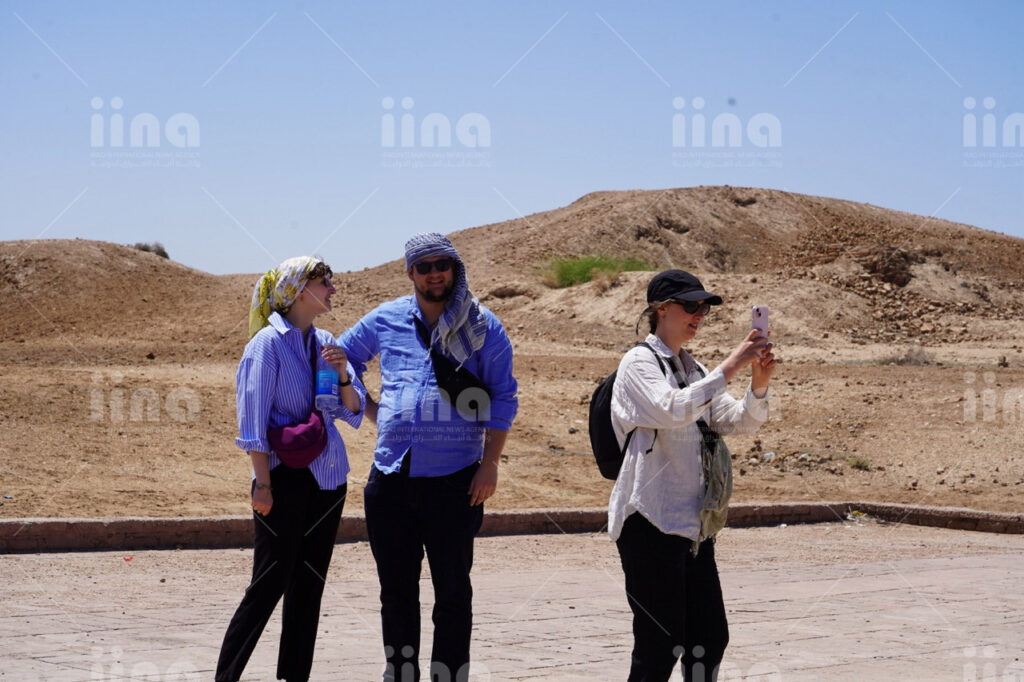
In 2017, 35,000 tourists both local and international visited the site. Despite a dip in numbers due to Covid-19 restrictions, Babylon still welcomes thousands of visitors annually from all over the world.
Visitors to modern-day Babylon enter through a reconstructed version of the Ishtar Gate, originally built in 575 BC.
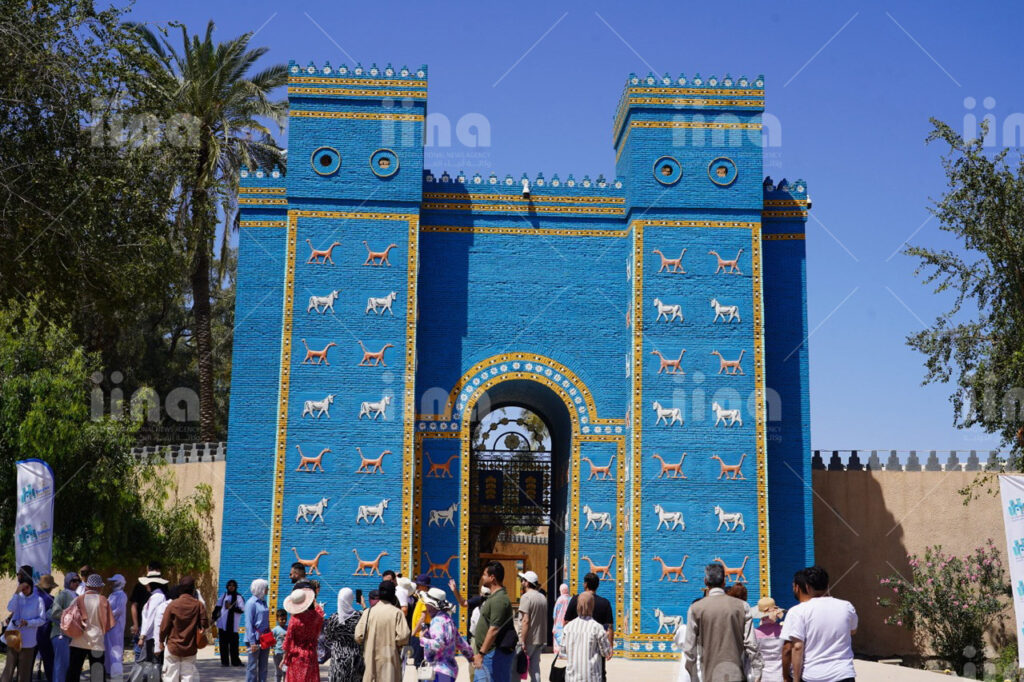
The iconic gate with its striking blue bricks, adorned with symbols of lions and bulls, each representing a different ancient Babylonian deity, was one of eight gates leading into the inner city of Babylon. Once dedicated to the Mesopotamian goddess Ishtar, it was recreated in the 20th century, using the traditional techniques to maintain its similarity with the original. The original gate is open to view in the Pergamon Museum in Berlin.
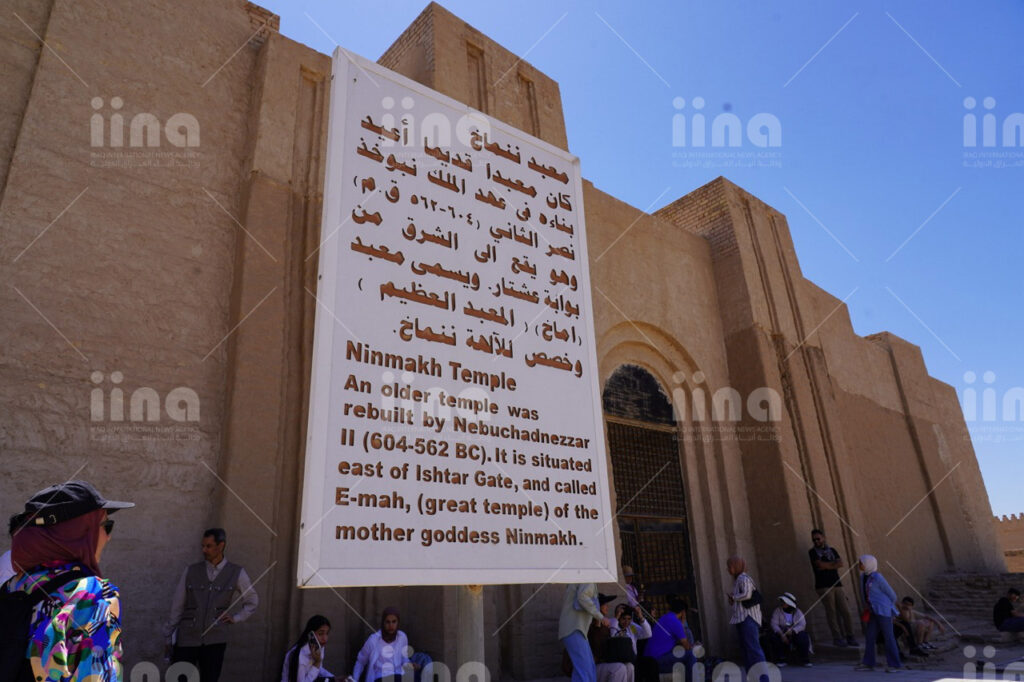
In 2019, Babylon was added to the UNESCO World Heritage list, in a big step forwards in protecting one of Iraq’s most important historical sites. Over the years, parts of the city were left in poor condition, but Iraqi teams, supported by international experts, have been working on long-term plans to protect the site and preserve what remains.
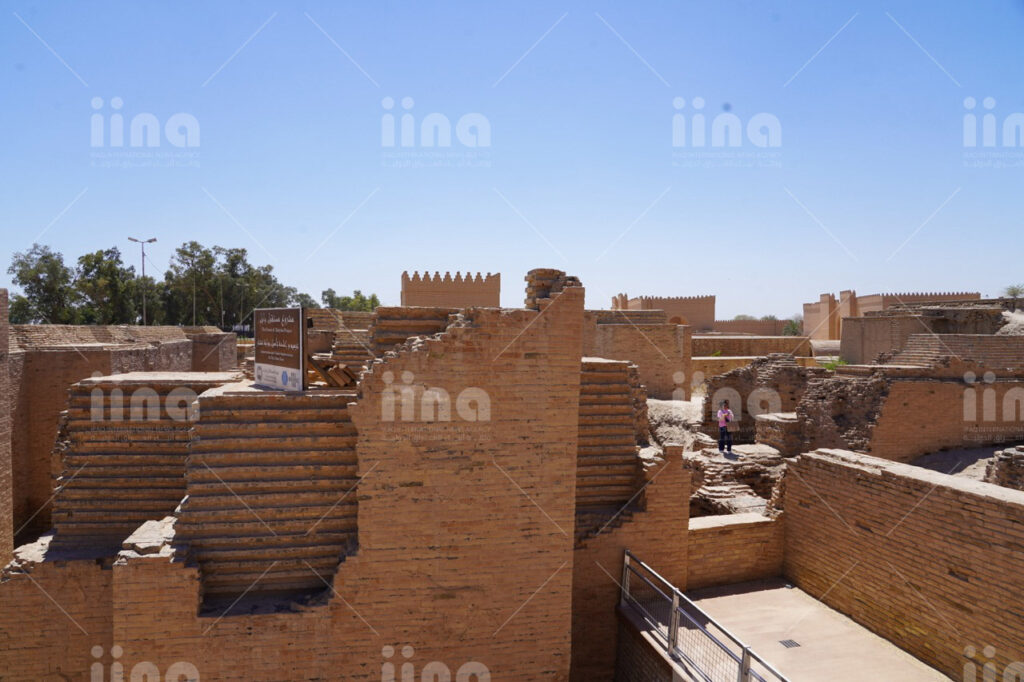
As tourists continue to stream into Babylon, the local economy reaps the rewards. With vendors selling foods, arts and crafts and a variety of cultural activities available on the site, young people have the opportunity to develop a deeper understanding of their heritage.
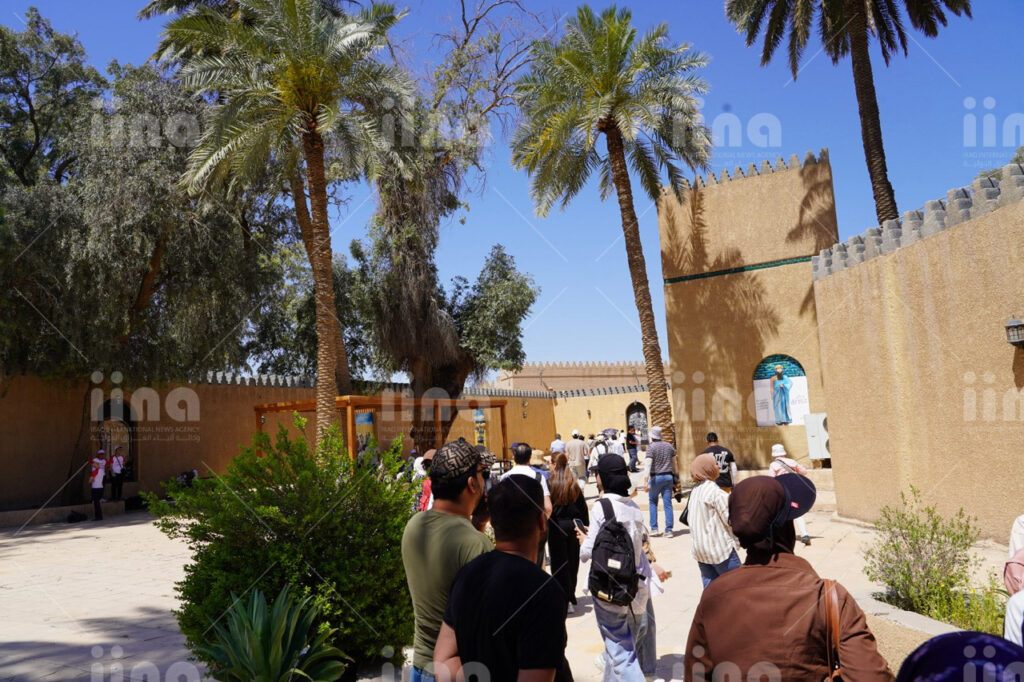
Babylon’s revival demonstrates the greater strides Iraq is taking to reconnect Iraqis with their history, whilst showcasing their rich cultural heritage to the world.
- Published: 6th May, 2025
- Location: Babylon
- Country: Iraq
- Editor: Amel Saleh
- Photographer: Noor Mohammed Mohsen
- Category: Culture and Heritage

